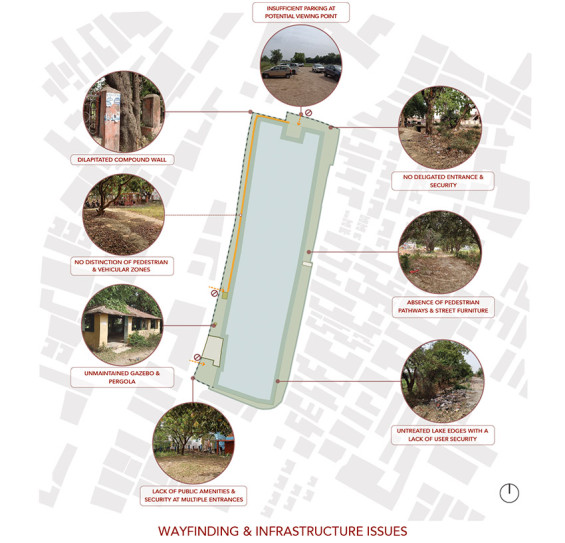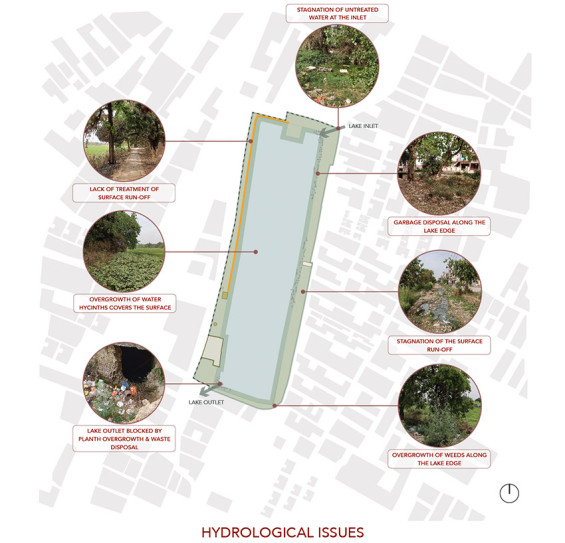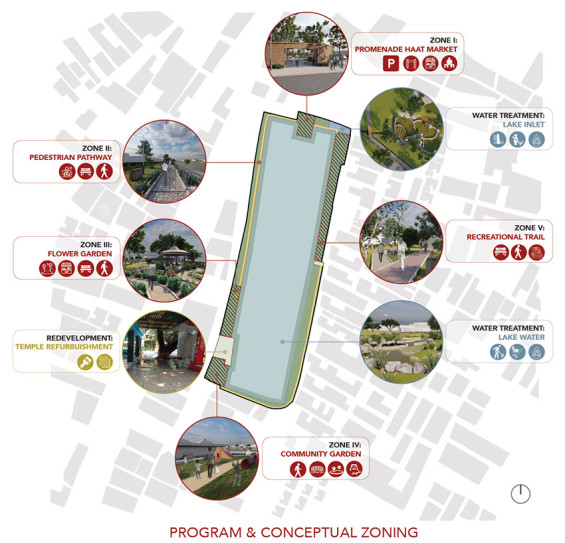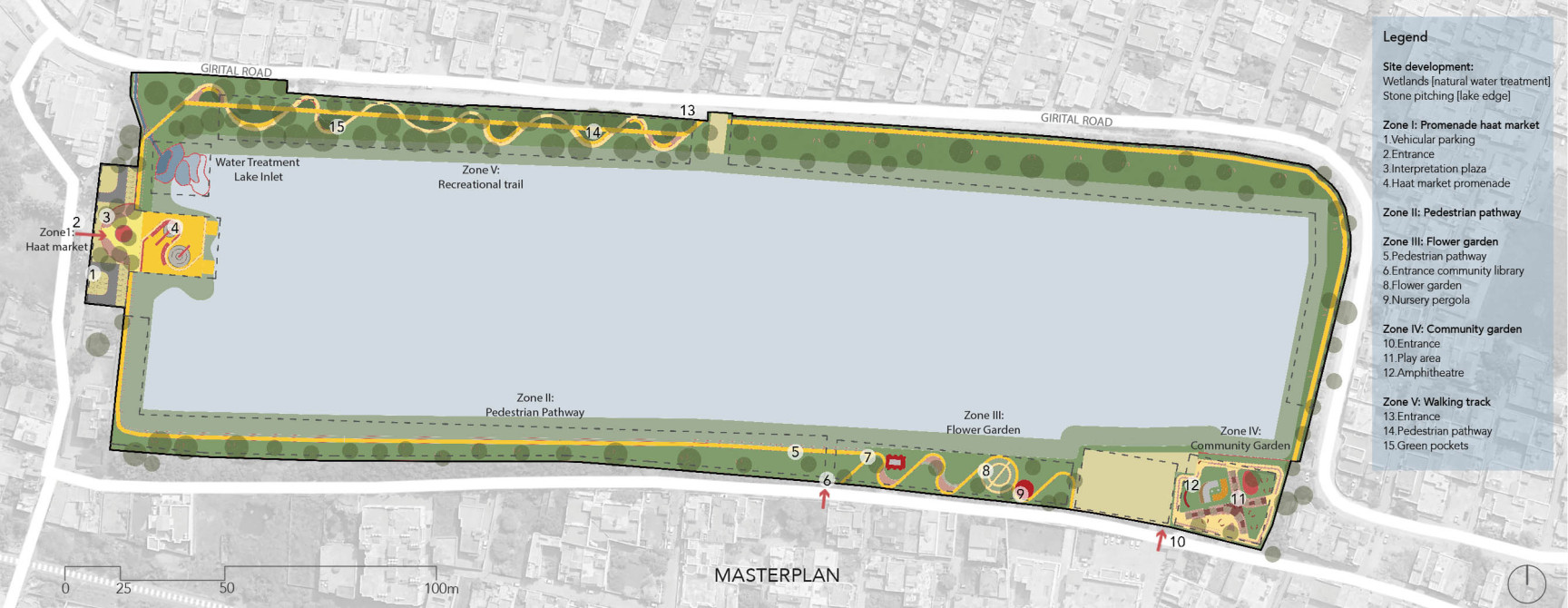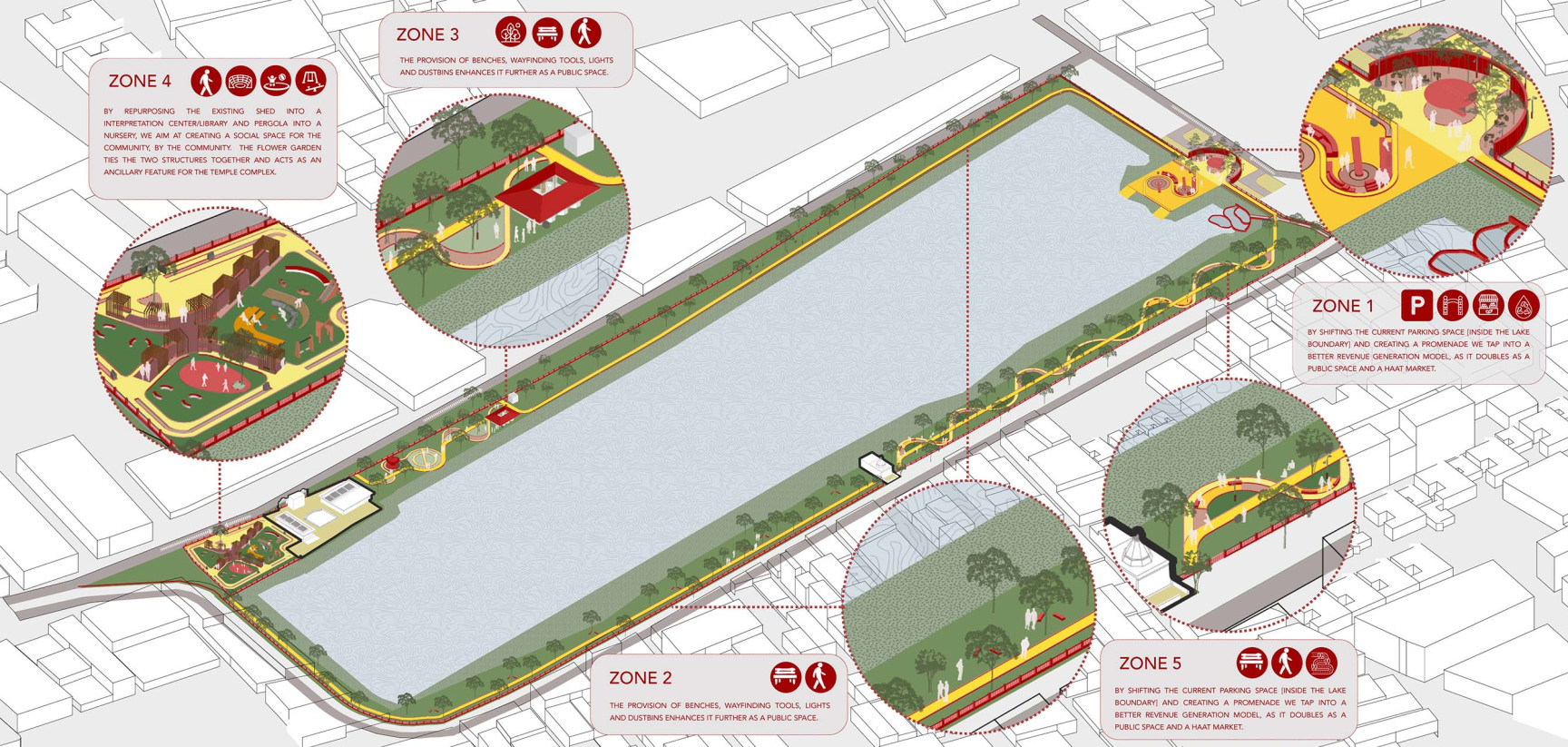

Giri Taal in Kashipur, Uttarakhand, is a natural aquifer-fed lake dating back to the Pandava era, historically serving as a critical irrigation source for nearby farmland. Spanning about 24 acres, this lake has deteriorated over the past four decades due to unplanned development, encroachment by residential areas, and neglected infrastructure. Once functional, the lake’s inlet and outlet are now clogged with solid waste, and with the declining groundwater table, the taal relies on rainwater and surface runoff to maintain water levels.
Surrounded by a dense grove of mature trees, including eucalyptus, Giri Taal provides a vital refuge for local wildlife, supporting diverse bird species and bat colonies. Aquatic and riparian vegetation around the lake fosters habitats for fish, insects, and amphibians, all crucial to the ecological health of the area. By restoring and enhancing this habitat, the project seeks to preserve this biodiversity, offering shelter to various avian and aquatic species and improving the ecological balance in the growing town of Kashipur.
The project envisions a sustainable, communal urban space with a continuous, pedestrian-friendly lake edge to improve accessibility. Enhancements to temple areas and open spaces will support community gatherings. Design elements like a bioswale belt and natural filtration aim to improve water quality, while dredging will increase water-holding capacity and remove invasive water hyacinth. Using natural materials like stone and brick with minimal construction respects the lake’s ecology, ensuring habitat preservation.
Stakeholder engagement and community input have been central to the project, aligning it with local needs. Giri Taal’s revitalization has the potential to become a model urban water body, supporting biodiversity, promoting rainwater harvesting, and offering socio-economic and recreational benefits to Kashipur’s residents, thereby enhancing ecological and community resilience.
